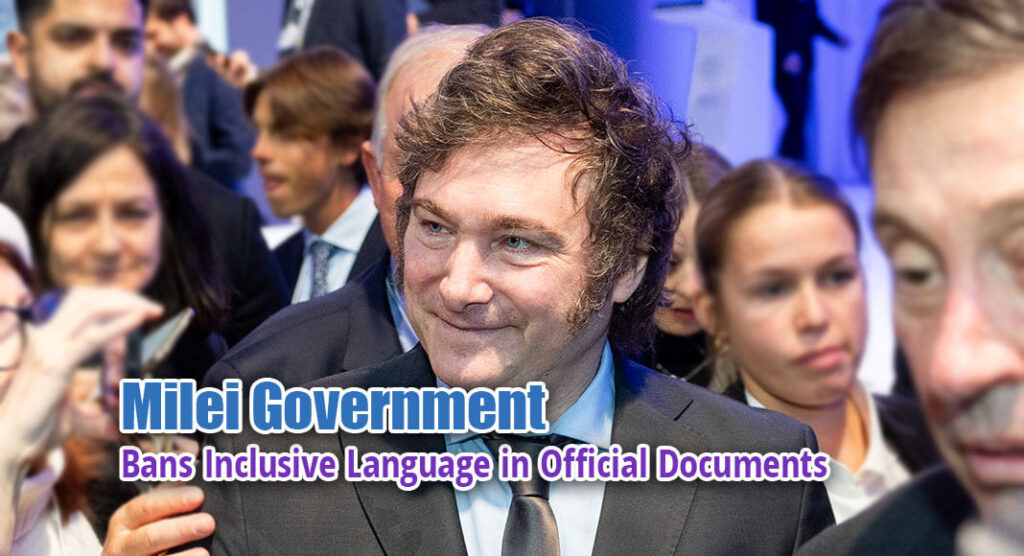
Staff
In a significant move that has stirred up controversy, the Argentine government under President Javier Milei has issued a directive to ban the use of inclusive language in public administration. This decision, heralding a clear stance against the indeterminate gender expressions commonly represented by the spellings “e,” “x,” and “@” in official documents, marks a pivotal moment in the nation’s ongoing cultural and political debates.
Presidential spokesperson Manuel Adorni announced during a press conference at the Pink House, the executive mansion and office of the President of Argentina. According to Adorni, the Milei administration is set to initiate actions prohibiting inclusive language and all aspects of the gender perspective within the national public administration, accusing it of being exploited for political gains. “This has been used as a political business,” Adorni stated, emphasizing the government’s disapproval of the politicization of gender inclusivity in official discourse.
The forthcoming policy mandates that no document within the public sector may utilize the vowel “e” or the symbols “x” and “@” to denote gender indeterminacy. Furthermore, it seeks to eliminate the “unnecessary inclusion of feminine” in references to plural subjects. This sweeping ban extends to all government departments and agencies, underscoring a unified approach to language use across the public administration.
Adorni further explained that the administration views Spanish as an inclusive language serving all societal sectors. He mentioned that the government would abstain from engaging in debates over gender perspectives, which they believe are exploited for political ends. This stance is in line with the Ministry of Defense’s earlier decision to enforce the exclusive use of Spanish in accordance with the norms of the Royal Spanish Academy.
Before ascending to the presidency, Javier Milei, self-described as an “anarcho-capitalist libertarian,” vocally criticized what he sees as the cultural implications of inclusive language. He has argued that such linguistic practices are part of a broader “cultural battle” against the “indoctrination of Marxism.” Milei attributes the origins of inclusive language, “gender ideology,” and the “ecological agenda” to Marxist influences, positioning his government’s recent decree as a countermeasure to these perceived threats.
This policy has ignited a heated debate among Argentines, reflecting more significant global conversations about language, identity, and inclusivity. Supporters see it as necessary to preserve the Spanish language and counteract political correctness. At the same time, critics argue it marginalizes non-binary and transgender individuals, reducing the visibility and recognition of gender diversity in public life. As Argentina grapples with these complex issues, the Milei administration’s directive sets the stage for ongoing discussions about the nation’s language, culture, and politics.













